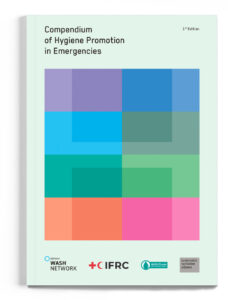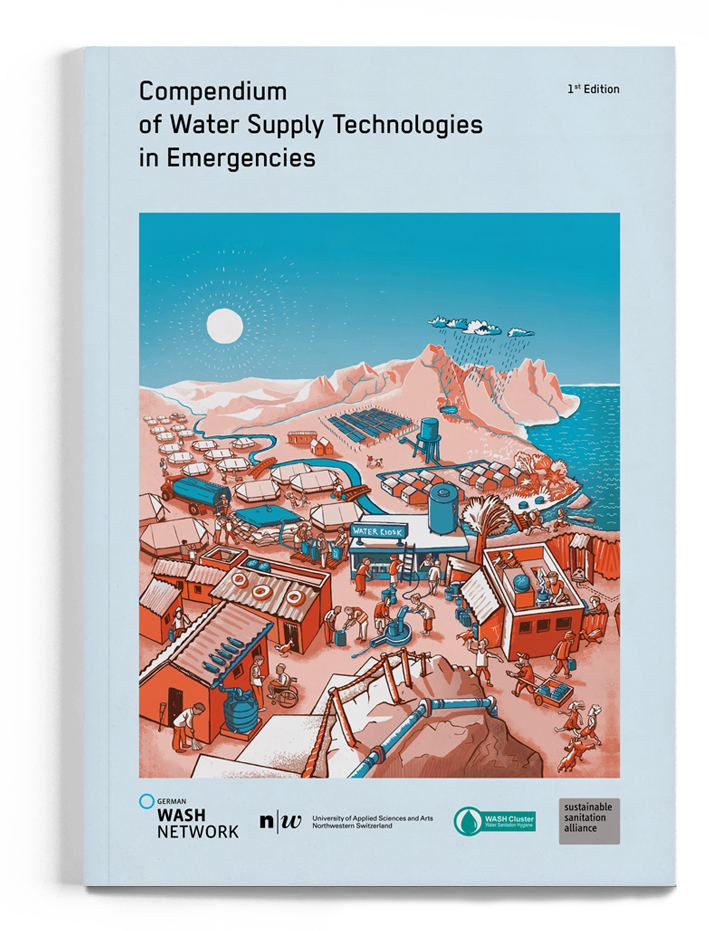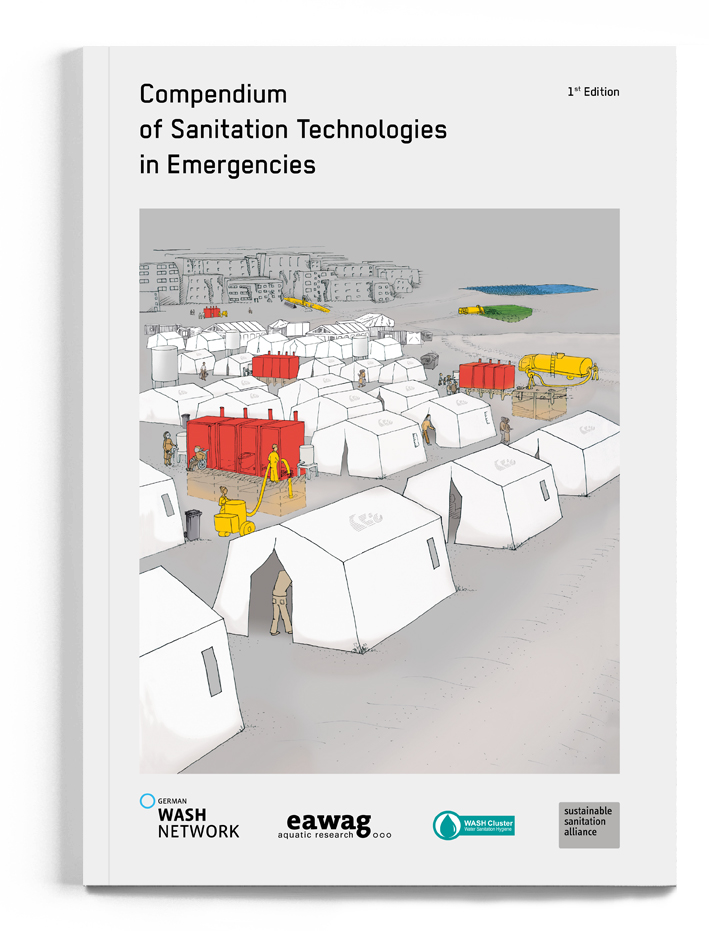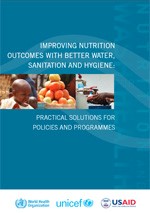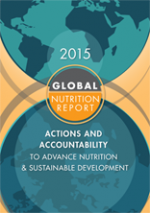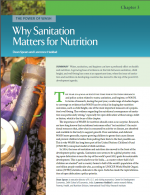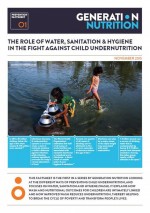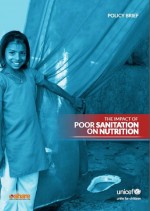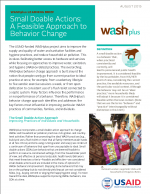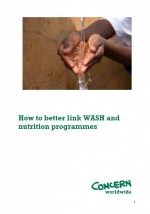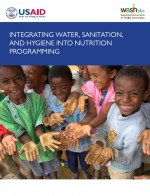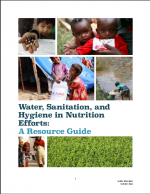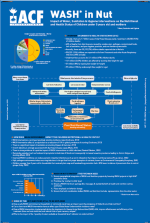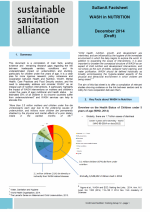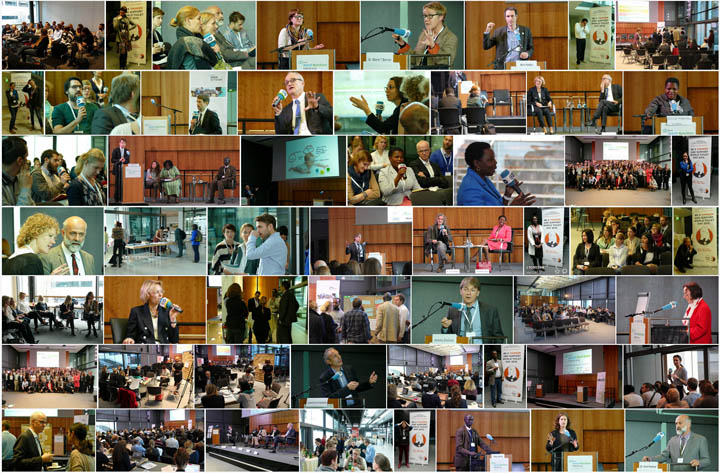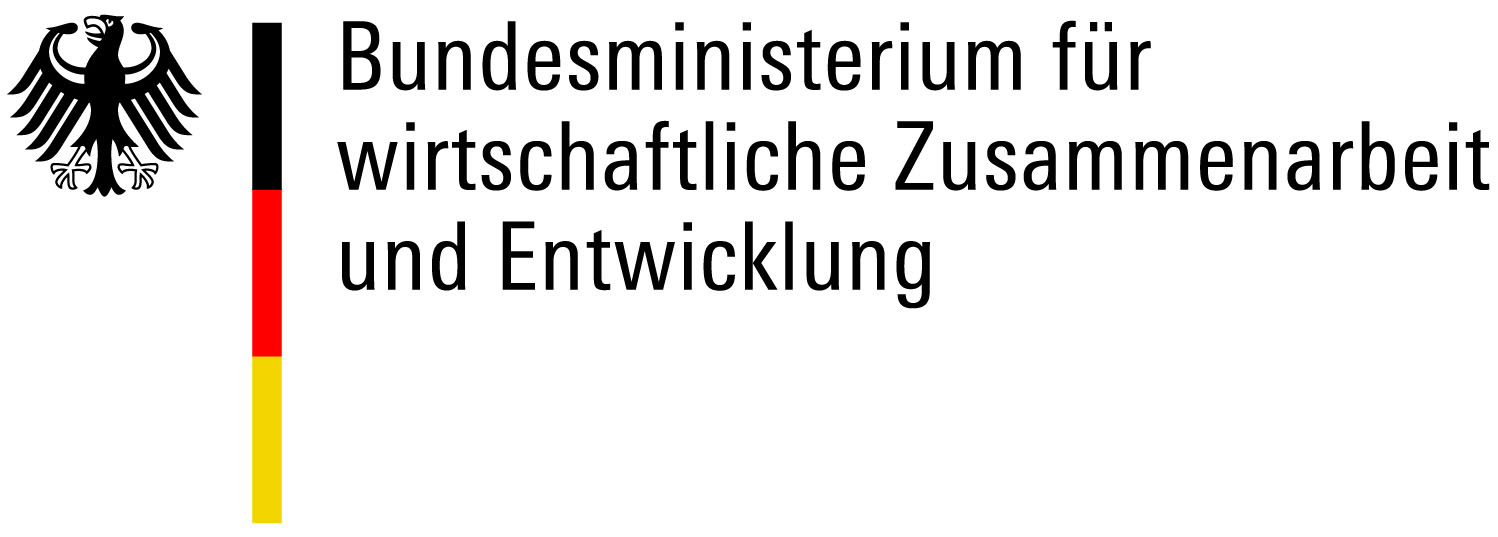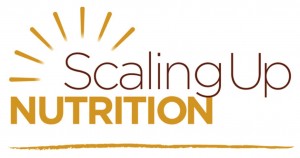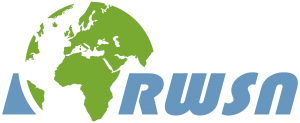Bonn WASH Nutrition Forum 2015
Political Dialogue & Thematic Discussion Forum – Bonn | November 11-12, 2015
The German WASH-Network – an alliance of German NGOs – hosted an international conference on the nexus between WASH and Nutrition in the city of Bonn, Germany in November 2015. (For more detailed information on the concept, speakers, results etc. please also click the tabs above.)
Since the Water, Energy and Food Security Nexus Conference in 2011, the link between WASH and Nutrition has been a key strategic area of focus of the German WASH Network. In an effort to place the issue on the international agenda, the network and its partners convened two seminars on WASH and Nutrition at the Stockholm World Water Weeks in 2012 and 2015.
The initiative culminated in the Bonn WASH Nutrition Forum 2015, the first international conference focused specifically on the WASH and Nutrition Nexus. The Forum intended to facilitate dialogue at the institutional and operational level. The event was organized by the German WASH Network in close cooperation with the German Federal Foreign Office and the German Federal Ministry of Economic Cooperation and Development. The global SWA Partnership and the global SUN Movement, along with several other networks and conference partners substantially contributed to the success of the Forum. Supported by the United Nations Secretary General’s Advisory Board on Water and Sanitation (UNSGAB) via its Chair, Dr. Uschi Eid, the conference was a contribution to the UN World Toilet Day 2015, which had “Toilets and Nutrition” as its priority theme in 2015.
Mirror Sessions as an Entry Point
Overcoming malnutrition is a great challenge that will require true collaboration between the WASH and nutrition sectors. The main aim of the forum was to bring together the relevant experts from both sectors. The forum intended to allow an effective mix of thematic inputs and discussions during so-called “mirror sessions”. Here, relevant sector professionals in similar positions from both the WASH and Nutrition sector were asked to present their work/perspective. Hearing about the other respective sector, allowed reflection of one’s own work (hence “mirror”) and inspired further discussions with other experts and participants on complementarity and collaboration between the sectors and the identification of joint indicators. The aim was to come up with a concrete set of recommendations, next steps and commitments in terms of viable operational approaches, research, policy and advocacy issues to lead to a more integrated approach for tackling undernutrition and stunting.
Experts Inspire Discussions
Beyond the mirror session renowned speakers have inspired outcome-oriented discussions, hereby helping the participants to a) assess the latest scientific evidence, b) define strategies and operational solutions and c) develop strategies to integrate the nexus into development and humanitarian policies.
Please click here to download the documentation of the Forum (ePaper format)
Please click here to see videos of the presentations on susana.org
Mirror Sessions
The forum had ensured an effective mix of presentations and discussions during “mirror sessions”. Here, sector professionals in similar positions from the WASH and Nutrition sectors were siting with their counterparts and presented their work. Hearing about the other respective sector allowed reflections (hence “mirror”) and inspired further discussions with other experts and participants on complementarity and collaboration between the sectors and the identification of joint indicators.
01 Global PartnershipsCatarina de AlbuquerqueExecutive Chair, Sanitation and Water for All (SWA) Partnership |
01 Global PartnershipsFlorence LasbennesHead of Secretariat, Scaling Up Nutrition (SUN) Movement |
02 UN Human Rights RapporteursLéo HellerUN Special Rapporteur for the Human Right to Safe Drinking Water and Sanitation (Video Message) |
02 UN Human Rights RapporteursHilal ElverUN Special Rapporteur for the Human Right to Food (Video Message) |
03 Global MonitoringBruce GordonWASH and Health Coordinator, WHO |
03 Global MonitoringLawrence HaddadIFPRI Senior Research Fellow – Poverty, Health & Nutrition Division |
04 Country Case South Sudan & Burkina FasoPeter MahalSWA Country Focal Point, Ministry of Water Resources and Irrigation, South Sudan |
Joséphine Ouédraogo/BaroDirector General, Ministry of Agriculture, Water Resources, Sanitation and Food Security, Burkina Faso |
05 Global Civil Society CoalitionsMegan Macgarry
|
05 Global Civil Society CoalitionsBen HobbsInternational Campaign Manager, Generation Nutrition |
06 Global Humanitarian ClustersJean LapeagueWASH Cluster – Strategic Advisory Group, ACF |
06 Global Humanitarian Cluster CoordinatorsJosephine IppeGlobal Nutrition Cluster Coordinator, UNICEF |
Agenda
Please click here to view the full agenda of the forum.
Chair
Dr. Uschi Eid (Conference Chair and Chair of UNSGAB)
Thilo Panzerbieter (Host of Conference, Chair of German WASH-Network)
Speakers
Catarina de Albuquerque (Vice Chair, Sanitation and Water for All Partnership)
Florence Lasbennes (Head of Secretariat, Scaling up Nutrition Movement)
Bruce Gordon (Coordinator of Water, Sanitation, Hygiene and Health, WHO)
Lawrence Haddad (Senior Research Fellow, Poverty, Health & Nutrition Division, IFPRI)
Oliver Cumming (Lecturer at the Environmental Health Group, London School of Hygiene and Tropical Medicine)
Christoph Strässer (German Federal Government Commissioner for Human Rights Policy and Humanitarian Aid)
Gunther Beger (Director General, Federal Ministry of Economic Cooperation and Development of Germany)
Dr. Stefan Schmitz (Commissioner, Special Unit “One World No Hunger”, Federal Ministry for Economic Cooperation and Development of Germany)
Dr. Tania Rödiger-Vorwerk (Deputy Director General, Federal Ministry for Economic Cooperation and Development of Germany)
Josephine Ouedraogo/Baro (Director General – Minister of Agriculture, Water Resources , Sanitation and Food Security, Burkina Faso)
Peter Mahal (SWA Country Focal Point South Sudan, Ministry of Water Resources and Irrigation)
Josephine Ippe (Global Nutrition Cluster Coordinator, UNICEF)
Dr. Jean Lapegue (Senior WASH Advisor, Action Contre La Faim)
Ben Hobbs (International Campaign Manager, Generation Nutrition)
Magan Macgarry (Communications and Campaigns Officer, End Water Poverty)
Tori Timms (EU Advocacy Coordinator, WaterAid)
Dr. Arne Panesar (Head of GIZ Sustainable Sanitation Programme, SuSanA Secretariat)
Matthias Mogge (Executive Director Programmes, Welthungerhilfe)
Dr. Marie T Benner (Senior Public Health Advisor, Malteser International)
Dr. Oliver Hoffmann (Public Health Advisor, The Johanniter)
Clean water and hygienic toilets – zero calories, but yet a large contribution to nutrition security
According to the World Health Organization (WHO) undernutrition is the outcome at the most immediate level of inadequate dietary intake and repeated infectious diseases. The major underlying causes – apart from food insecurity, inappropriate care practices and poor health sector performance – include the continuous exposure to adverse environmental conditions, which are often closely related to poor water, sanitation and hygiene practices. The resources available in a society and the context of their utilisation constitute the basic causes of undernutrition (please click on figure to enlarge).
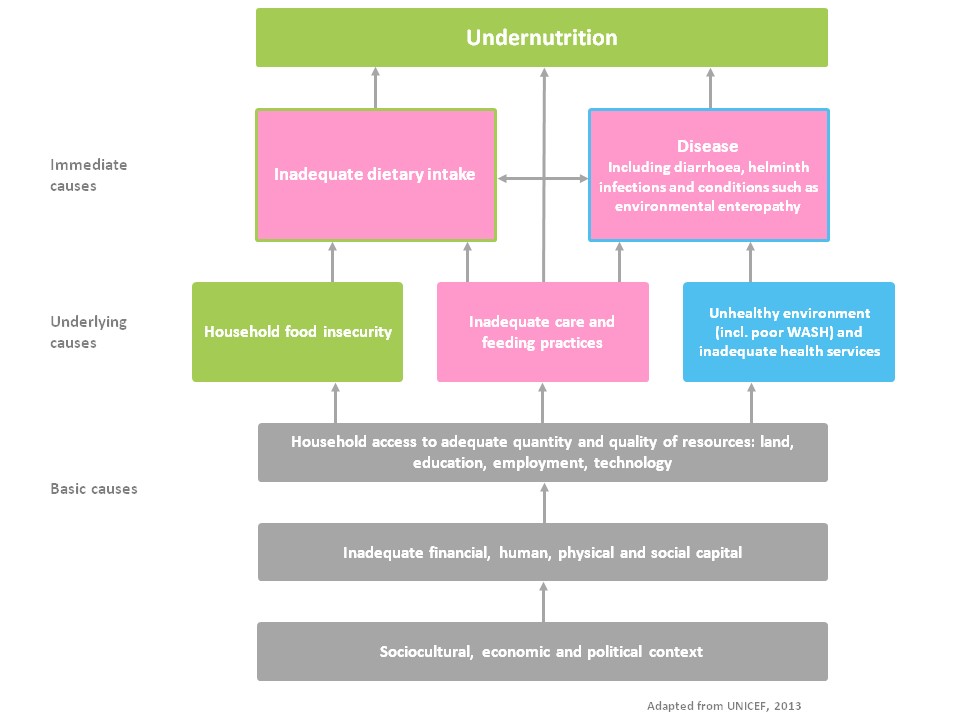
A poor nutritional status has significant consequences for a child’s further development, including a higher risk of morbidity and mortality. According to the WHO, up to 45% of all under-5 child deaths globally are related to malnutrition. Out of these cases, it is estimated that approximately 50% are WASH-related and associated with faecally transmitted infections (FTIs) like diarrhea or intestinal worm infections caused by unsafe drinking water and/or poor sanitation and hygiene. The most critical period in a person’s development are the first 1000 days – beginning with conception, through a mother’s pregnancy and up until the age of two – during which children are particularly vulnerable to adverse effects of FTIs. Any damage done to a child’s physical growth, immune system and brain development during this period is usually irreversible.
On-going research shows that not only diarrhoea and intestional worm infections such as helminthiasis and schistosomiasis prevent the efficient absorption and utilization of nutrients, but also the environmental enteric dysfunction (EED), an asymptomatic syndrome causing chronic inflammation, reduced nutrient absorption of the intestine and a weakened barrier function of the small intestine, with children being most affected. The pathways along which pathogens can be transmitted are manifold, reaching from water and soil to flies and hands. Once brought in contact with food, pathogens can easily affect the intestinal tract.
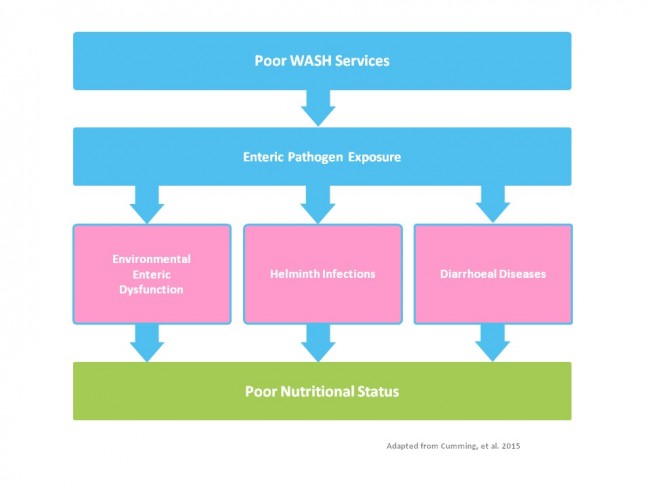
According to the World Bank (2015) available evidence suggests that about 90% of the cases of diarrhea worldwide can be prevented by provision of an improved water supply, water safety planning, household water treatment and safe storage, improved sanitation facilities and hygiene promotion.
In addition to the direct links between WASH and nutrition, there are a variety of indirect implications. High distance from the household to water points and/or long access time to sanitation facilities reduces time for education, economic activities, care practices and good hygiene practices. Where safe water is available for purchase from vendors, high water prices often leave less money available for food and other necessities.
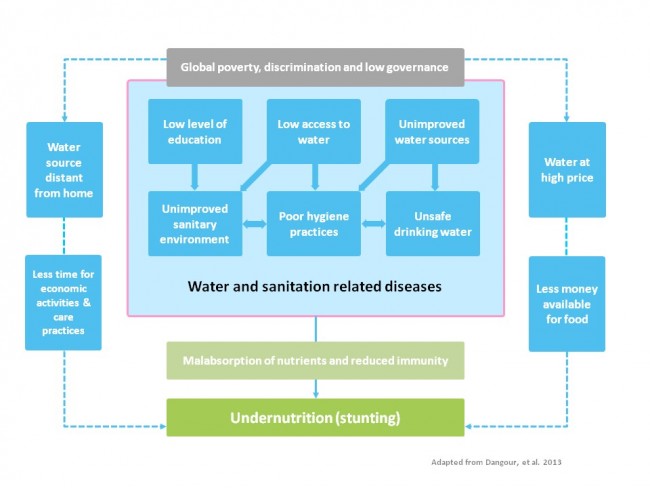
How can we optimize nutrition impacts?
Despite the good evidence of WASH being an underlying cause of undernutrition, Oliver Cumming (London School of Hygiene and Tropical Medicine) stressed at the Forum that the evidence of the direct impact of WASH interventions on the nutritional status has not been fully analysed and documented. New studies show that WASH plausibly affects growth in multiple ways although the magnitude of this effect is less clear. Implicit questions to be answered by both the WASH and Nutrition community are: What are the most effective interventions? Where do we need to focus efforts? Whom do we need to target? When do we need to target them?
Future efforts for integrating WASH and Nutrition will have to take into account the analysis of costs (e.g. time spent in coordination) and benefits (e.g. health gains) as well as a better understanding on incentives of linking these two thematic areas. Integrated programming can happen at many levels and may take different forms. The WHO recommends to build on what exits, to increase integration only when worthwhile, document and reflect on lessons learnt and further refine and improve joint efforts. The following table adapted from WHO et al. (2015) shows key WASH and Nutrition practices, along with delivery strategies and settings (please click on figure to enlarge).
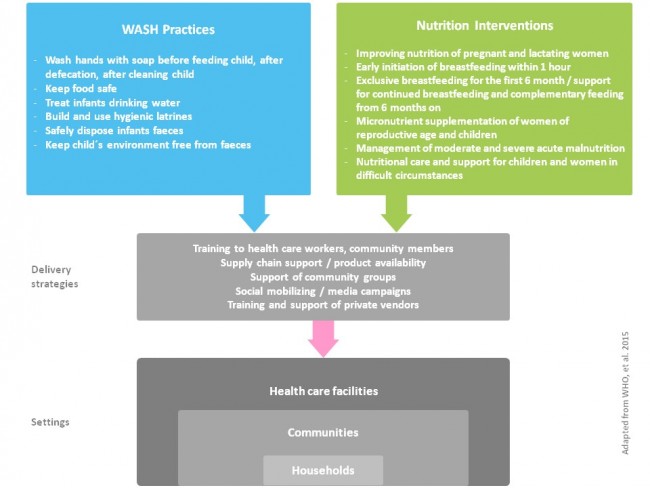
Overcoming malnutrition is a great challenge that will require true collaboration between the WASH and nutrition sectors. Policy and interventions of the two sectors must be interconnected. The German WASH Network is one of the key pioneers of this underestimated nexus with its far-reaching consequences. The network first highlighted the issue on an international stage at the Bonn Nexus Conference in 2011. This was followed up by a seminar at World Water Week 2012, which resulted in various significant follow-up processes (e.g. establishment of a working group within the Sustainable Sanitation Alliance, the above mentioned conference).
Please find the video of the presentation of Oliver Cumming (LSHTM) here
Please visit the SuSanA Working Group “WASH and Nutrition”
SuSanA Factsheet “WASH and Nutrition”
Click here, to find more information about the WASH in Nutrition event at the World Water Week 2015
Key Recommendations of the Forum
The Forum has produced results on many levels. In addition to tangible deliverables like timelines and a list of commitments, the organisers have compiled the results of the group works and the conclusions of the final panel in 6 key recommendations. The 6 key recommendations were carried by the Chair of the Forum, Dr. Uschi Eid, to the World Toilet Day celebrations in New York.

Create further Evidence on the Impact of WASH Interventions on Nutrition
The latest research clearly provides evidence of the adverse effects that lacking WASH has on the nutritional status, particularly on children. Enteric Pathogen Exposure can be reduced considerably by improved latrines, improved water supply and hand washing with soap, leading to documented positive health outcomes. However, the specific impact of WASH interventions on under-nutrition has not been fully analysed and documented. In the spirit of the SDGs the Forum recommends the systematic integration of monitoring systems for WASH and Nutrition, aligning to measure long-term public health outcomes. The relationship between research institutions and implementing agencies should be strengthened, in order to identify ways to reduce implementation inefficiencies.
Outcomes of development cooperation can be significantly improved when synergies between WASH and Nutrition are addressed
This calls for a) geographical focusing of WASH investments in high undernutrition prevalence areas (co-location), b) the consideration of joint priority intervention areas, like health facilities, but also the community, schools and household levels, c) the prioritisation of age groups and “the first 1,000 days period” as these are a critical window for effective WASH and Nutrition Interventions, d) engaging and empowering women, paying special attention to the mother child unit, and e) a stronger focus on the elimination and eradication of neglected tropical diseases (NTDs), such as soil-transmitted helminthiasis, guinea-worm disease, trachoma and schistosomiasis, which affect mainly children.
Using the SDGs to create an umbrella for sector integration
The Forum recommends that the sectors collaborate to produce an ‘umbrella-package’ of the key targets and indicators from across the SDGs and other existing commitments (e.g. the six global nutrition targets 2025) that – if realized – will support positive health outcomes and could/should be the focus points for action. This should/could be facilitated and sponsored by WHO and would be a useful guideline for governments and a framework for collaboration between actors.
Using the global WASH and Nutrition platforms for scaling-up
The ambitious global goals of the SDGs can only be achieved if the global investments in WASH and nutrition increase substantially. The two most important platforms of the global WASH and Nutrition architecture, the Sanitation and Water for All Partnership (SWA) and the Scaling Up Nutrition Movement (SUN) have made enormous progress over the last years in building up high level support and facilitating public commitments of numerous countries and donors. We recommend to support the global platforms in their efforts to foster collaboration and coordination across issues, sectors and stakeholders.
Identify quick wins and synergies between WASH and Nutrition
Both have health as their overarching aim, both rely on the same surveys. The promotion of joint assessments/ causal analysis and the development of corresponding indicators to guide implementers can be an opportunity. While doing so, be open for a more systematic integration of WASH and Nutrition.
Effectively changing behaviour is a core focus of both WASH and Nutrition
Pooling resources, identifying target behaviours and aligning effective behavioural change strategies can help to support better public health outcomes. This includes the identification of common target behaviors or practices, key messages, target groups and change agents like public health workers or religious leaders.
Key Publications and Resources
Please click on the cover photo to download the resource of your choice. Upcoming publications are not yet published and therefore not downloadable.
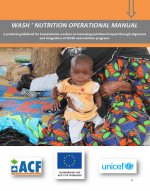
Upcoming: WASH ´ Nutrition Operational Manual
Author: Jovana Dodos et. al
Publisher: ACF, UNICEF and ECHO
Year/Location: Upcoming (2016)
ACF, UNICEF and ECHO are going to launch a practical guidebook for humanitarian workers on increasing nutritional impact through alignment and integration of WASH and nutrition programs at the Stockholm World Water Week 2016.
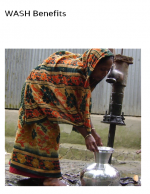
Upcoming: WASH Benefits
Author: N.N.
Publisher: University of California, Berkeley, Bill and Melinda Gates Foundation
Year/Location: Upcoming (2016)
The publication will present the results of a randomized control trial to measure the impact of water quality, sanitation, handwashing, and nutritional interventions among newborn infants in rural Bangladesh and Kenya. The studies will measure primary outcomes after two years of intervention. The study will be published at the end of 2016, including earlier previews at various events, including World Water Week.
Improving Nutrition Outcomes with Better Water, Sanitation and Hygiene: Practical Solutions for Policies and Programmes
Author: N.N.
Publisher: World Health Organization, UNICEF, USAID
Year/Location: 2015
This publication, jointly prepared by WHO, the United Nations Children’s Fund (UNICEF) and the United States Agency for International Development (USAID), summarizes the current evidence on the benefits of WASH for improving nutrition outcomes and describes how WASH interventions can be integrated into nutrition programmes. It provides practical suggestions, targeted at nutrition programme managers and implementers, on both “what” WASH interventions should be included in nutrition programmes and “how” to include them. It also seeks to help the WASH community to better understand their role, both as providers of technical expertise in WASH interventions and in prioritizing longer-term improvements to WASH infrastructure in areas where under-nutrition is a concern.
The Global Nutrition Report 2015: Actions and accountability to advance nutrition and sustainable development
Author: L. Haddad et.al.
Publisher: International Food Policy Research Institute (IFPRI)
Year/Location: 2015, Ney York, USA
The Global Nutrition Report (GNR) provides a global profile and 193 country profiles on nutrition for each of the United Nations’ 193 member states, and includes specific progress for each country. In 2014 a consortium of nations, organizations, researchers, and academics has released the GNR, the first-ever comprehensive narrative on global health and country-level progress toward reducing malnutrition across the globe. It was a centerpiece of the Second International Conference on Nutrition (ICN2) in Rome on 19-21 November, organized by the UN Food and Agriculture Organization and the World Health Organization.
The Power of WASH: Why Sanitation Matters for Nutrition
Author: D. Spears, L. Haddad
Publisher: WaterAid, WEDC, Share
Year/Location: 2015, UK
Water, sanitation, and hygiene can have a profound effect on health and nutrition. A growing base of evidence on the link between sanitation, child height, and well-being has come at an opportune time, when the issue of sanitation and nutrition in developing countries has moved to the top of the post-2015 development agenda.
The role of water, sanitation & hygiene in the fight against child undernutrition
Author: Generation Nutrition Global Campaign Team
Publisher: Generation Nutrition, End Water Poverty, WaterAid
Year/Location: 2015, UK
This factsheet is the first in a series by Gereration Nutrition looking at different ways of preventing child undernutrition, and focuses on Water, Sanitation and Hygiene (WASH). It explains how WASH and Nutrition outcome for children are intimately linked and how improved WASH reduces undernutrition, thereby helping to break the cycle of poverty and transform people’s lives.
The Power of WASH: Why Sanitation Matters for Nutrition
Author: A. Chitty
Publisher: SHARE Research Consortium, UK; UNICEF, India
Year/Location: 2015, India
With 165 million children suffering from chronic undernutrition (being stunted) and 52 million suffering from acute malnutrition (being wasted), more concerted and cross-sectoral action is needed. Improving WASH in the context of nutrition programming offers one important opportunity to do this. This paper summarises the evidence for the impact of poor sanitation on nutritional outcomes and highlights the potential offered by greater integration of WASH within nutrition policy and programmes.
Small Doable Actions: A Feasible Approach to Behavior Change
Author: N.N.
Publisher: WASH plus
Year/Date: 2015, Washington D.C., USA
WASHplus incorporates a small doable action approach to change WASH and household air pollution practices in its global- and countrylevel activities. Rather than promoting the ideal WASH practices (e.g., build and use a flush toilet or insist that all family members wash hands at all five critical junctions using running water and soap), it constructs a continuum of behaviors that span from unacceptable to ideal. Small doable actions (SDAs) are behaviors that are deemed feasible to perform in resource-constrained settings, from the householder point of view, and effective at personal and public health levels.
How to better link WASH and nutrition Programmes
Author: N.N.
Publisher: Concern Worldwide
Year/Location: 2014, UK
This paper aims to provide some practical guidance on how water sanitation and hygiene (WASH) programmes can be more nutrition-sensitive and how nutrition programmes can incorporate more WASH aspects. It should be useful for all project staff working in nutrition and WASH programmes when WASH and/or a nutrition programme are in operation.
Integrating water, sanitation, and hygiene into nutrition programming
Author: N.N.
Publisher: WASH plus, USAID
Year/Location: 2013, Washington D.C.,USA
Unsafe water was considered the primary cause of diarrhea in children transitioning from an exclusive breastfeeding diet, but recent evidence also points to unsafe food. The brochure highlights some WASH interventions that can prevent diarrhea and under-nutrition even in hygiene-challenged environments.
Water, Sanitation, and Hygiene in Nutrition Efforts: A Resource Guide
Author: I. Neequaye and C. Keltne
Publisher: WASH Advocates
Year/Location: 2015, Washington, USA
This resource guide provides recent reports, manuals, strategies, examples of advocacy efforts, and other resources that cover WASH and global advocacy along with relevant organizations in the WASH advocacy field. This guide can serve as a tool for professionals, implementers, and advocates looking to pursue and promote WASH advocacy efforts.
ACF WASH in Nut – Poster
Author: J. Lapegue
Publisher: ACF International
Year/Location: 2014, France
The poster illustrates the impact of water, sanitation & hygiene interventions on the nutritional and health status of children under 5 years old and mothers.
SuSanA Factsheet WASH in Nutrition
Author: J. Lapegue, R. Lozano, K. Lellouche, J. Onsurbe, A. Coerver, S. Simon, R. Gensch, A. Schmidt
Publisher: SuSanA WG 12
Year/Location: 2015, Germany
This document is a compilation of main facts, existing evidence and remaining research gaps regarding the link between inadequate sanitary conditions and its underestimated impact on undernutrition and stunting, particularly for children under five years of age. This is a draft version.
Impressions from the Forum
Please click on the overview-picture to open the complete picture gallery on flickr.
The Bonn WASH Nutrition Forum 2015 will take place in the headquarter of Germany’s international broadcaster Deutsche Welle, next to the Bonn UN-Campus.
Venue:
Deutsche Welle
Kurt-Schumacher-Straße 3
53113 Bonn
In close collaboration with
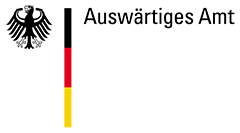
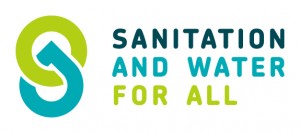
Online Hosting Platforms
Partners

With financial support of


